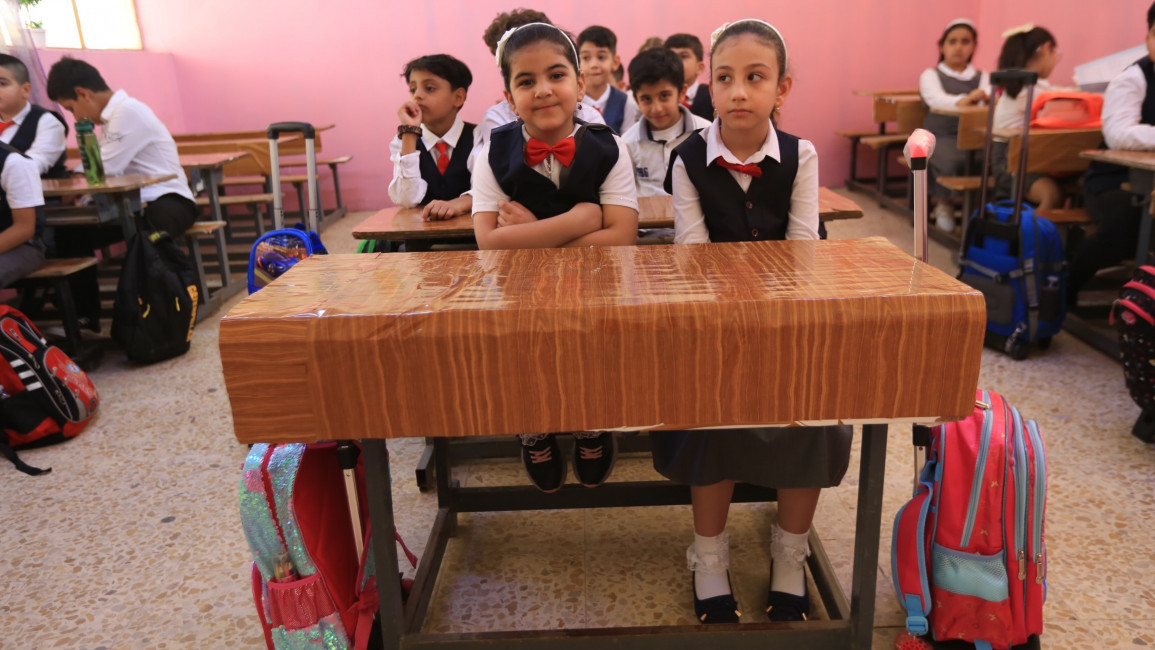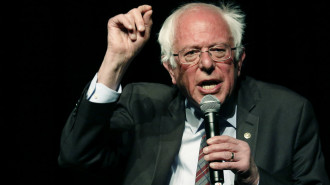Amid Israel's invasion of Lebanon, displaced Lebanese students resume education in Iraq
Iraqi public and private schools have begun offering free education to Lebanese students to ease the hardships faced by Lebanese families displaced by the Israeli attacks. This initiative aims to ensure that Lebanese children do not miss out on their education, as the flow of families into Iraq continues due to Israel's ongoing war.
Recently, Iraq's Ministry of Education issued instructions to facilitate the admission of Lebanese students into public schools across the country, offering assistance and simplifying the enrolment process. The General Directorate of Evaluation and Examinations provided guidelines for welcoming these students into Iraqi educational institutions.
Based on their residential location, the Directorate stated that Lebanese students will be admitted to the nearest schools in line with their current grade level. In cases where official documentation is unavailable, the students can be enrolled with a signed guarantee from their parents. Moreover, those who complete key stages of their education—such as primary, middle, or high school—will receive official school records upon successful completion.
Many Lebanese students have already integrated into Iraq's public schools and started their academic year, benefiting from the newly introduced measures. However, some challenges remain, including the limited number of public schools and their distance from residential areas.
In response, several private school owners have stepped forward, offering free education to Lebanese students, according to a report by Safaa Al-Kubaissi, Al-Araby Al-Jadeed’s reporter in Baghdad.
The initiative began in Basra and has since expanded to other provinces. In these private schools, not only is education provided for free, but the schools also cover the cost of textbooks and supplies.
According to Adil Al-Miyahi, the principal of a Basra private school, this move aims to alleviate the suffering of Lebanese students and their families.
He explained that public schools in some residential areas are too far away, and the high number of students in public schools prompted private school administrators to offer their support. Al-Miyahi told Al-Araby Al-Jadeed, The New Arab's Arabic-language sister publication, that many Lebanese students have already been enrolled in private schools free of charge, with books and stationery also provided at no cost.
He also emphasised that teachers have been instructed to offer special attention to Lebanese students, as differences between the Lebanese and Iraqi curricula might pose challenges in understanding the material.
Asaad Al-Maamouri, a member of the Iraqi Teachers' Union, confirmed that the initiative, which started in Basra, has since expanded to other provinces, including Maysan, Dhi Qar, and Diwaniyah. He noted that the generosity shown by Iraqi schools reflects the country's commitment to supporting Lebanese families during this difficult time.
Al-Maamouri pointed out that dozens of Lebanese students have already begun attending private schools and are forming friendships with their Iraqi peers, marking the beginning of their integration into Iraqi society.
Iraq's Ministry of Education has stressed the importance of ensuring that Lebanese students do not miss out on their education, and authorities have expressed confidence that this integration will positively impact the students' mental well-being, helping them feel that Iraq is a second home during their time of need.
In an earlier move, the Iraqi government issued directives to facilitate the entry of Lebanese citizens into Iraq following the Israeli assault on Lebanon. The government also allocated 3 billion Iraqi dinars to provide aid and support to the displaced Lebanese families, with over 8,000 Lebanese citizens having arrived in Iraq so far.




 Follow the Middle East's top stories in English at The New Arab on Google News
Follow the Middle East's top stories in English at The New Arab on Google News
![The US vetoed a UN Security Council (UNSC) resolution demanding a ceasefire in Gaza [Getty]](/sites/default/files/styles/image_330x185/public/2185152251.jpeg?h=7ef8ac04&itok=RpLSj2pu)

![An attack by paramilitary forces in Sudan has killed at least 40 people [Getty]](/sites/default/files/styles/image_330x185/public/2182364341.jpeg?h=a5f2f23a&itok=r8Fkhxdj)